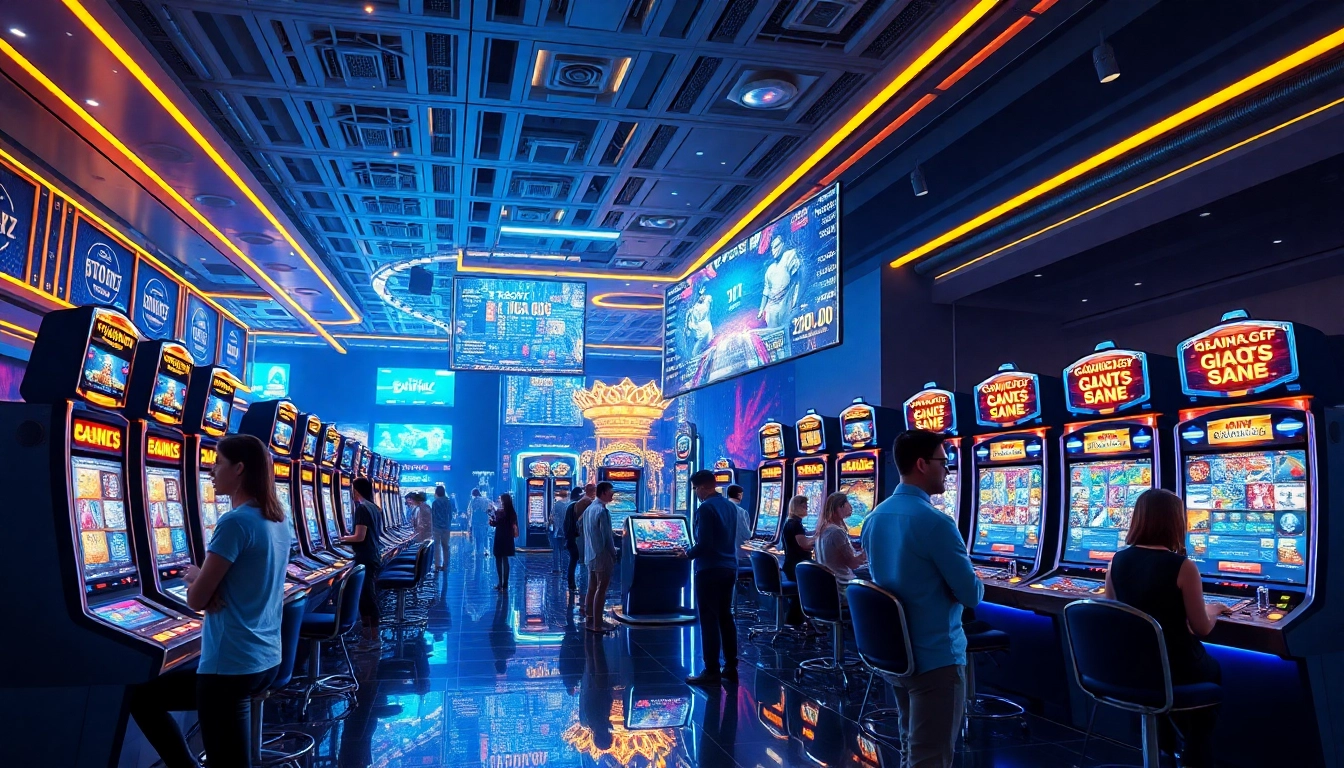Understanding New Technology in Gambling
The gambling industry is undergoing a transformation, fueled by new technology innovations that are reshaping the experience for players and operators alike. As the digital landscape evolves, traditional casinos are merging with futuristic technologies, enhancing both gameplay and operational efficiency. In this context, understanding how new technologies impact gambling is crucial for stakeholders in the industry.
What is New Technology?
New technology refers to advancements that fundamentally alter existing processes or create opportunities for innovation. In gambling, this includes applications of artificial intelligence, virtual reality, blockchain, and mobile applications. These technologies allow casinos to offer more engaging experiences, streamline operations, and provide better customer service while ensuring security and compliance.
Impact of New Technology on the Gaming Experience
New technologies have significantly impacted the gaming experience. Players now enjoy immersive experiences that were previously unimaginable:
- Enhanced Immersion: Technologies like virtual reality (VR) enable players to experience games in a virtual environment, providing a more engaging atmosphere than traditional slot machines.
- Personalized Gameplay: AI-driven algorithms can track player behaviors and preferences, resulting in personalized experiences that cater to individual player tastes.
- Instant Access: Online gambling platforms powered by mobile technology offer unparalleled convenience, allowing players to access their favorite games anywhere, anytime.
Consumer Expectations and Technology Trends
As technology evolves, consumer expectations in the gambling space are changing. Today’s players seek seamless experiences driven by technology. Trends such as live dealer games, where human dealers interact with players in real time, have rapidly gained popularity. Additionally, the demand for security in online transactions pushes operators to adopt blockchain technology to enhance trust and transparency.
The Rise of AI in Casino Operations
Artificial Intelligence: Enhancing Customer Experience
Artificial intelligence (AI) is transforming how casinos interact with their players. Chatbots powered by AI are enhancing customer service by providing instant assistance for common inquiries:
- 24/7 Support: Chatbots can cater to player inquiries around the clock, addressing common issues such as account verification, bonuses, or gameplay instructions without human intervention.
- Predictive Analysis: AI tools analyze player histories to identify preferences and recommend games that align with those preferences, thereby increasing player engagement and satisfaction.
Fraud Prevention with AI Technology
Fraud remains a significant concern in the gambling industry, especially in online spaces. AI algorithms are leveraged to detect suspicious activities in real-time. For example, if a player exhibits behavior inconsistent with their historical playing patterns, the system can trigger alerts for further investigation. This proactive approach not only protects the integrity of the gambling platform but also reassures users that their data is secure.
Data Analytics for Improving Player Engagement
Data analytics play a vital role in strategic decision-making within casinos. By analyzing vast amounts of player data, operators can:
- Optimize Game Offerings: Operators can identify which games perform best and tailor their offerings to enhance player retention and satisfaction.
- Improve Marketing Efforts: By understanding player behavior, casinos can tailor marketing campaigns that resonate with targeted demographics, boosting acquisition and player loyalty.
Virtual Reality: The Future of Gambling
What is Virtual Reality in Gaming?
Virtual Reality (VR) involves using computer technology to create immersive simulations that allow players to interact with a digitally-created environment. In the gambling context, VR can transform everyday gaming into thrilling experiences that replicate real-life casino atmospheres.
How VR is Changing Player Interactions
Virtual reality is revolutionizing social interactions in gaming:
- Social Gaming: Players can interact in virtual casinos with avatars, enabling them to socialize with others, conversing and celebrating wins as they would in a physical casino.
- Interactive Play: VR games allow players to perform actions like placing bets, spinning reels, or even walking around a virtual casino—a far cry from the traditional screen experience.
Pros and Cons of VR Gambling Experiences
While VR has significant advantages, it also presents challenges:
- Pros:
- Highly immersive and engaging experiences can increase player loyalty.
- Offers a unique selling point that can differentiate casinos in a competitive market.
- Cons:
- High development costs may limit access to smaller operators.
- Not all players may have the necessary hardware or comfort level with VR technology.
Mobile Gambling and Apps: Convenience Meets Technology
A Growing Market for Mobile Gambling
The proliferation of smartphones has led to a significant shift towards mobile gambling, with many players preferring apps over traditional casinos. The mobile gambling market is projected to expand due to the convenience and accessibility it offers.
Top Features in Modern Gambling Apps
Successful gambling apps incorporate various features that enhance user experience:
- User-Friendly Interface: Intuitive designs make navigation simple, allowing players to quickly find their favorite games and features.
- Secure Payment Options: Providing multiple payment gateway options builds trust with players, ensuring secure transactions.
- Live Betting Options: Real-time betting capabilities during live events offer an exhilarating experience, keeping players engaged.
Challenges and Considerations for App Development
While developing gambling apps offers opportunities, several challenges must be addressed:
- Regulatory Compliance: Meeting the varying legal requirements across jurisdictions can be complex.
- High Competition: With numerous gambling apps in the market, differentiation through features and promotions is essential.
Future Trends: What Lies Ahead for Gambling Technologies
Emerging Technologies in Gambling
The future holds exciting possibilities as emerging technologies continue to shape the gambling industry. These include:
- Blockchain Technology: Providing transparency and security in transactions, blockchain can significantly reduce fraud.
- Wearable Technology: Devices such as smartwatches might allow players to access games and betting information on the go.
Integrating New Technology with Traditional Gaming
As new technologies emerge, the challenge will be integrating them seamlessly with traditional gaming experiences. Operators will need to strike a balance between maintaining classic elements that players love while incorporating innovative gameplay dynamics.
Predictions for the Next Decade of Gambling Innovations
Looking ahead, the gambling landscape predicts significant advancements:
- The integration of AI and machine learning will likely create even more personalized gaming experiences, enhancing engagement.
- The growth of AR (Augmented Reality) could pave the way for interactive approaches in real-world gambling environments.
- Regulatory bodies may evolve to accommodate the rapid advancements, ensuring a safe and fair playing field for all stakeholders.

